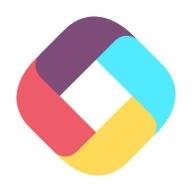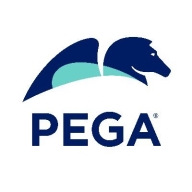

Pega Platform and Fliplet are products in the application development space. Pega Platform stands out with its comprehensive functionality, while Fliplet appeals for its ease and adaptability.
Features: Pega Platform provides advanced automation capabilities, complex workflow management, and enterprise-scale solutions. Fliplet offers a low-code development environment, rapid app creation, and adaptability for smaller teams.
Ease of Deployment and Customer Service: Fliplet focuses on swift deployment and flexible customer support, minimizing technical barriers. Pega Platform involves a more intricate deployment process and longer onboarding cycles, requiring more initial time and support investment.
Pricing and ROI: Pega Platform has a higher setup cost, promising substantial long-term ROI for large enterprises. Fliplet has a lower initial cost, providing quick ROI and an attractive entry point for small to medium businesses.
| Product | Market Share (%) |
|---|---|
| Pega Platform | 6.5% |
| Fliplet | 0.1% |
| Other | 93.4% |

| Company Size | Count |
|---|---|
| Small Business | 9 |
| Midsize Enterprise | 15 |
| Large Enterprise | 68 |
Build apps without code. Fliplet works with blue chips clients such as Accenture, Deloitte and Colgate to build everything from marketing apps to intranet apps to workstream apps. Fliplet offers a drag and drop interface for non-technical people to build their own bespoke apps. Enterprise clients benefit from world class design and user experience expertise as well as pro-active online support. Fliplet works Apple, Android and Windows and meets enterprise-grade security requirements.
Pega Platform facilitates business process management, case management, and workflow automation for industries like banking, insurance, and healthcare. It supports digital transformation and customer service enhancements with its low-code capabilities and seamless integrations.
Pega Platform enables users to create efficient systems for case management, financial operations, and digital transformations. It provides tools for client onboarding, quoting, claims processing, customer experience improvements, and content management. Pega's low-code approach allows for the automation of complex processes, making it suitable for enterprises looking for adaptability and rapid deployment. While it offers strong real-time analytics and decision automation, users acknowledge challenges in user interface, integration, and performance aspects. High costs and a learning curve need attention, and enhancements in AI features and cloud services are desired.
What are the key features of Pega Platform?In banking, Pega Platform automates loan processing, accelerates customer onboarding, and manages compliance. Insurance companies benefit from streamlined claims processing and policy management. Healthcare sectors use the platform for patient engagement and care coordination, enabling organizations to adapt quickly to changing industry requirements.
We monitor all Rapid Application Development Software reviews to prevent fraudulent reviews and keep review quality high. We do not post reviews by company employees or direct competitors. We validate each review for authenticity via cross-reference with LinkedIn, and personal follow-up with the reviewer when necessary.